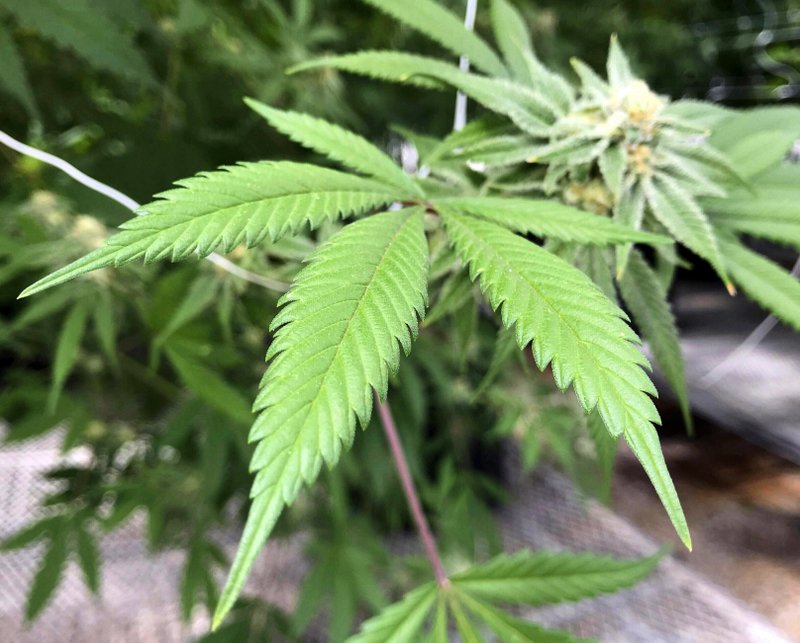New Mexico would legalize recreational marijuana sales without exceptions for dissenting cities and counties under a rebooted proposal from legislators that stresses small business opportunities and ready access to pot for 80,000 current medical cannabis patients.
Legalization for the first time enjoys the full support of second-year Democratic Gov. Michelle Lujan Grisham, who set up a volunteer commission last year to vet health and public safety concerns about recreational cannabis and on Thursday pitched the benefits of the pot economy to a gathering of business leaders.
The Legislature convenes Tuesday for a 30-day session with Democrat-authored proposals listed high on the agenda by allied majority leaders in both chambers.
Under mirror legalization bills filed this week in the House and Senate, the proliferation of licensed marijuana growers, processors, retailers and transporters would be overseen by the state, though counties and cities would retain control over local zoning restrictions and hours of dispensary operation.
The system aims to stamp out the black market and avoid a regulatory patch-quilt, while giving local jurisdictions the right levy their own taxes on marijuana sales.
Every recreational dispensary would be required also to offer medical marijuana to patients who qualify under a long list of medical conditions such as cancer, post-traumatic stress and chronic pain. New Mexico founded its medical cannabis program in 2007.
That provision responds to evidence of escalating prices and scarce offerings for medical marijuana in states including Oregon that have authorized recreational marijuana. No state yet mandates medical cannabis sales at pot shops, said Carly Wood, state policies coordinator at the National Organization for the Reform of Marijuana Laws.
Some taxes would be waived on medical cannabis, while poor patients would be offered subsidies.
A second pillar of the legislation is to inject a dose of social equity and new economic opportunities for minority communities that have been disproportionately hurt by America’s war on drugs, said Rep. Javier Martinez, the House bill’s co-sponsor.
“How do we begin to dismantle this inequitable framework that was created 50 years ago — drug laws that were rooted in racist views?” Martinez said. “Obviously we’re not going to resolve that with one bill. But we believe that this framework creates opportunities.”
Past convictions for possession of up to 2 ounces of marijuana would automatically be expunged from public records. Currently New Mexico residents can petition a judge for expungement after fulfilling sanctions or sentences.
Medical marijuana businesses — including local market leader Ultra Health with more than 20 dispensaries statewide — are positioning themselves for the opening a New Mexico recreational pot market. The newly introduced legislation would create “micro business” licenses designed to help small family farms and entrepreneurs who have limited resources.
If the bill goes through, Billy Rogers, a native of Texico on New Mexico’s eastern plains near the Texas state line, hopes to launch a small-scale greenhouse marijuana growing and manufacturing operation with his father under as a micro-business at a 160-acre family ranch. The property currently provides a trickle of income from wheat farming — maybe $15,000 in a good year, Rogers said.
He calculates that a well-tended, 100-plant marijuana crop could bring in more than a half-million dollars in revenue with two or three harvests a year.
“There are thousands of people like us across the state,” he said. “This allows these guys to hopefully get out of unproductive, debt-laden assets and completely flip their fortunes around in a year or two.”
The Texico area is represented in the House by Rep. Martin Zamora, R-Clovis, a staunch opponent of recreational marijuana legalization who worries openly about the health affects of more widespread use.
Republican House Minority Whip Rod Montoya of Farmington said it would be unfair to force counties into allowing marijuana businesses when local elected officials don’t want the industry.
“Even with alcohol we allow counties to opt out in New Mexico,” he said. “This is just Santa Fe (politicians) thinking that they know better than every single local official.”
A bipartisan legalization bill last year that involved state-run cannabis stores won House approval by a two-vote margin before stalling without another floor vote in the Senate, where several moderate Democrats have openly opposed legalization. Deliberations begin this year in the Senate, where a handful of Republicans have backed past legalization efforts.
Sen. Gerald Ortiz y Pino, D-Albuquerque, a lead sponsor of the initiative, gives his bill a 50-50 chance of winning Senate approval this year, noting entrenched attitudes against decriminalization.
“There ares still senators who are waging the same battle that they were waging in the 1970s and ’80s,” Ortiz y Pino said. “Time has passed them by. Marijuana is not a portal to other drug use.”
(AP)











